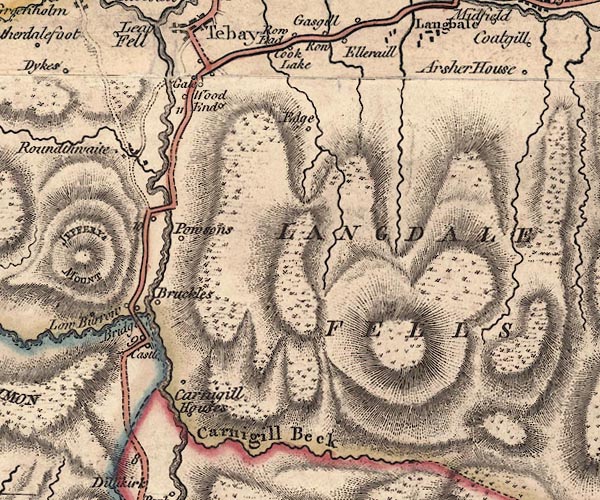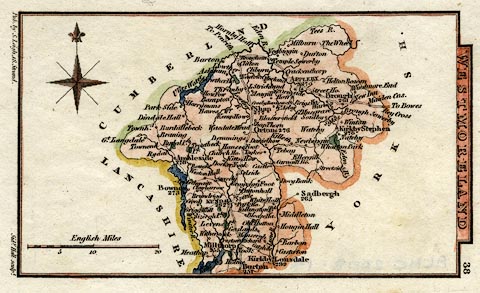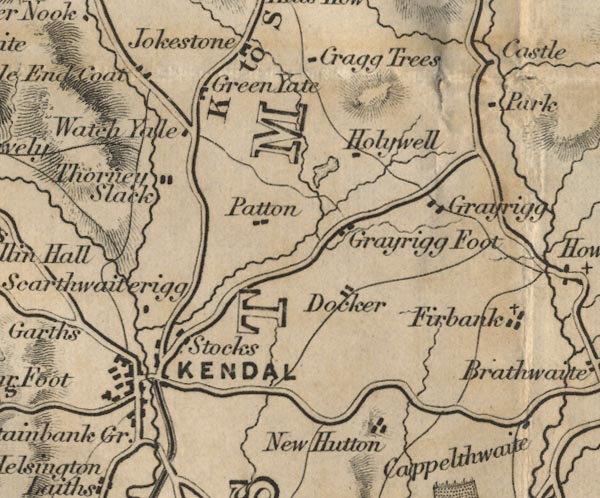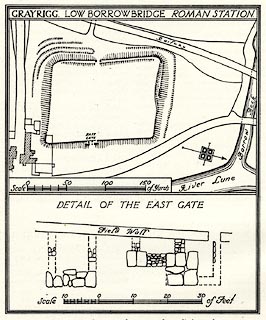





J5NY60SW.jpg
"Castle"
circle; roman fort?
item:- National Library of Scotland : EME.s.47
Image © National Library of Scotland
placename:- Castle
 click to enlarge
click to enlargeHA18.jpg
"Castle"
circle, italic lowercase text; settlement
item:- Armitt Library : 2008.14.58
Image © see bottom of page
placename:- Castle Field
placename:- Alone
 goto source
goto sourcePage 189:- "[Low Borrow Bridge] ... Behind the house is a Roman Station, now called Castle Field, consisting of a square inclosure, 360 feet in length, and 300 in breadth. On the sides facing the east, north, and west, are the remains of the walls; and on the latter side, the traces of two fosses. Where the east gate stood, is a stone, which was dug out a few years ago, and it is evidently one of the original sockets, the groove for the hinge remaining as perfect as if freshly cut. Sherds of Roman pottery have been found; and a silver coin of the reign of Aurelian. From the style of the cutting or quartering of the facing stones, (many of which have been used in building the outhouses, in order to preserve them,) there is no doubt that this station is coeval with Overborough, and is the site of the long lost and much disputed Alone. The very name seems to warrant this opinion; for it is the first station on the Lune (or Lone); and what so natural as to give it the title from the river which watered its walls? The remains of several buildings have been discovered between the eastern wall and the river."

FD02SD59.jpg
"Castle"
item:- JandMN : 100.1
Image © see bottom of page
placename:- Low Borrowbridge Roman Station
 click to enlarge
click to enlargeHMW070.jpg
On p.100 of the Inventory of the Historical Monuments in Westmorland.
printed, top "GRAYRIGG, LOW BORROWBRIDGE ROMAN STATION"
RCHME no. Wmd, Grayrigg 1
item:- Armitt Library : A745.70
Image © see bottom of page
